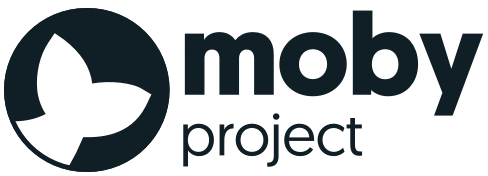This was originally in docker/libnetwork#2624, which has been closed since the code was moved here. When creating a new network, IPAM's address allocator attempts to reserve the network and broadcast addresses on IPv4 networks of all sizes. For RFC 3021 point-to-point networks (IPv4 /31s), this consumes both available addresses and renders any attempt to allocate an address from the block unsuccessful. This change prevents those reservations from taking place on IPv4 networks having two or fewer addresses (i.e., /31s and /32s) while retaining the existing behavior for larger IPv4 blocks and all IPv6 blocks. In case you're wondering why anyone would allocate /31s: I work for a network service provider. We use a lot of point-to-point networks. This cuts our address space utilization for those by 50%, which makes ARIN happy. This patch modifies the network allocator to recognize when an network is too small for network and broadcast addresses and skip those reservations. There are additional unit tests to make sure the functions involved behave as expected. Try these out: * `docker network create --driver bridge --subnet 10.200.1.0/31 --ip-range 10.200.1.0/31 test-31` * `docker network create --driver bridge --subnet 10.200.1.0/32 --ip-range 10.200.1.0/32 test-32` My installation has been running this patch in production with /31s since March. Signed-off-by: Mark Feit <mfeit@internet2.edu> Signed-off-by: Sebastiaan van Stijn <github@gone.nl> |
||
|---|---|---|
| .github | ||
| api | ||
| builder | ||
| cli | ||
| client | ||
| cmd | ||
| container | ||
| contrib | ||
| daemon | ||
| distribution | ||
| dockerversion | ||
| docs | ||
| errdefs | ||
| hack | ||
| image | ||
| integration | ||
| integration-cli | ||
| internal/test/suite | ||
| layer | ||
| libcontainerd | ||
| libnetwork | ||
| oci | ||
| opts | ||
| patches | ||
| pkg | ||
| plugin | ||
| profiles | ||
| project | ||
| quota | ||
| reference | ||
| registry | ||
| reports | ||
| restartmanager | ||
| rootless | ||
| runconfig | ||
| testutil | ||
| vendor | ||
| volume | ||
| .DEREK.yml | ||
| .dockerignore | ||
| .gitignore | ||
| .mailmap | ||
| AUTHORS | ||
| CHANGELOG.md | ||
| codecov.yml | ||
| CONTRIBUTING.md | ||
| Dockerfile | ||
| Dockerfile.e2e | ||
| Dockerfile.simple | ||
| Dockerfile.windows | ||
| Jenkinsfile | ||
| LICENSE | ||
| MAINTAINERS | ||
| Makefile | ||
| NOTICE | ||
| poule.yml | ||
| README.md | ||
| ROADMAP.md | ||
| SECURITY.md | ||
| TESTING.md | ||
| vendor.conf | ||
| VENDORING.md | ||
The Moby Project
Moby is an open-source project created by Docker to enable and accelerate software containerization.
It provides a "Lego set" of toolkit components, the framework for assembling them into custom container-based systems, and a place for all container enthusiasts and professionals to experiment and exchange ideas. Components include container build tools, a container registry, orchestration tools, a runtime and more, and these can be used as building blocks in conjunction with other tools and projects.
Principles
Moby is an open project guided by strong principles, aiming to be modular, flexible and without too strong an opinion on user experience. It is open to the community to help set its direction.
- Modular: the project includes lots of components that have well-defined functions and APIs that work together.
- Batteries included but swappable: Moby includes enough components to build fully featured container system, but its modular architecture ensures that most of the components can be swapped by different implementations.
- Usable security: Moby provides secure defaults without compromising usability.
- Developer focused: The APIs are intended to be functional and useful to build powerful tools. They are not necessarily intended as end user tools but as components aimed at developers. Documentation and UX is aimed at developers not end users.
Audience
The Moby Project is intended for engineers, integrators and enthusiasts looking to modify, hack, fix, experiment, invent and build systems based on containers. It is not for people looking for a commercially supported system, but for people who want to work and learn with open source code.
Relationship with Docker
The components and tools in the Moby Project are initially the open source components that Docker and the community have built for the Docker Project. New projects can be added if they fit with the community goals. Docker is committed to using Moby as the upstream for the Docker Product. However, other projects are also encouraged to use Moby as an upstream, and to reuse the components in diverse ways, and all these uses will be treated in the same way. External maintainers and contributors are welcomed.
The Moby project is not intended as a location for support or feature requests for Docker products, but as a place for contributors to work on open source code, fix bugs, and make the code more useful. The releases are supported by the maintainers, community and users, on a best efforts basis only, and are not intended for customers who want enterprise or commercial support; Docker EE is the appropriate product for these use cases.
Legal
Brought to you courtesy of our legal counsel. For more context, please see the NOTICE document in this repo.
Use and transfer of Moby may be subject to certain restrictions by the United States and other governments.
It is your responsibility to ensure that your use and/or transfer does not violate applicable laws.
For more information, please see https://www.bis.doc.gov
Licensing
Moby is licensed under the Apache License, Version 2.0. See LICENSE for the full license text.
